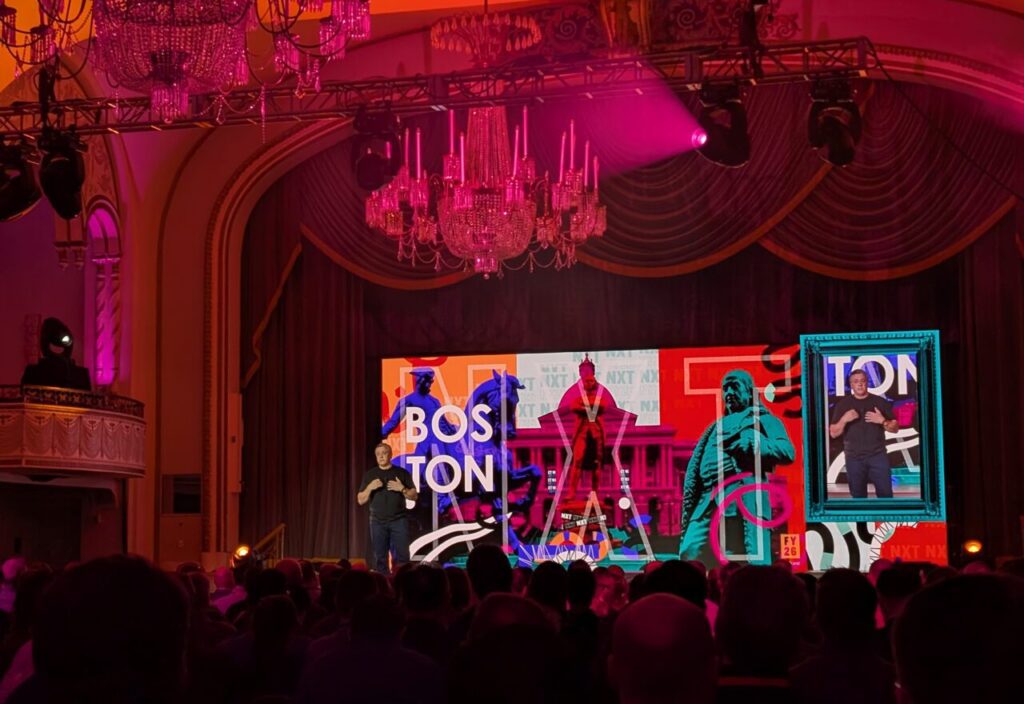This ad by Accenture is part of a series that is apparently running widely in both general-interest and business publications.
I puzzled over it for quite some time.
First of all, not being a stock market analyst or a company executive considering the use of a management consultant, I never heard of Accenture. But that’s just my ignorance.
Turns out it’s merely the world’s largest management and technology consulting concern, with some 110 offices in 46 countries. If the name is unfamiliar to you, too, it’s probably because it was part of accounting firm Arthur Andersen until it managed to break away from the disgraced parent a couple of years ago.
But you’d never guess from this ad what the company is or what it does — unless perhaps you have keen eyesight and spotted a clue at the bottom of the page, the four words “Consulting — Technology — Outsourcing — Alliances.”
Written in beach sand are the words, “I am your idea. One day you’ll look for me and I’ll be gone.”
Part of the problem is the use of the word “idea.” Bill Safire could probably do a column on its different meanings. For instance, I have an idea for a gadget that will clear the glop out of the drain basket in your kitchen sink. I also have a great idea for a TV sitcom. How do I know the ad is not reaching out to me? There is no hint in the headline that the “you” is a large corporation.
Yes, “idea” can also mean a business intention. But that might merely mean that someone at FedEx or UPS had the bright idea that they should change the company’s color scheme. They wouldn’t need a management consultant for that, except maybe to talk them out of it.
But even more troublesome is the inherent absurdity of the headline. As we know, Apple has been moving forward with an ambitious program for selling Macintosh computers through its own retail stores. But can you imagine Steve Jobs saying to his guys, “Gee, I once had this big idea for expanding our sales — but when I went to look for it the other day, it was gone. What do you suppose it was?”
Overall, Accenture’s advertisement ignores the three big requirements of good ad making:
- Who is the prospect?
- What are we selling?
- Why should you buy?
Here’s all the body copy at the bottom has to say:
It’s not how many ideas you have. It’s how many you make happen. So whether it’s your idea or Accenture’s, we’ll help you turn innovation into results. See how at accenture.com.
That’s it?
In my makeover, it is immediately clear that this advertisement is being directed at substantial companies, not lone inventors, authors or small entrepreneurs.
The headline reaches out to major corporations, but is worded so as not to exclude smaller companies, which should find it reassuring to have the same management consultant as the likes of AT&T, J.C. Penney and Radio Shack.
Then came the question of the promise. I wanted to avoid the above-mentioned ambiguity of the word “idea.” It occurred to me that companies often do talk of having a corporate “vision.” Indeed, the word occurs more than once in Accenture’s formidable Web site of several hundred pages. So why not appeal to a (big) company that has a dream (vision)? And then make it clear that Accenture is a big-league consulting firm suited to help it realize that dream?
For the visual metaphor, instead of the wishy-washy letters in the sand, I chose the open-road photo I found on Accenture’s Web site. It seemed like a striking depiction of zooming straight ahead, with no obstacles, to a wonderful destination over the horizon.
Then in the copy I tried to cover succinctly the wide range of possible corporate needs for outside help and Accenture’s capability for meeting them.
Even though one variation of the ad did include a sidebar of a few woolly testimonials, I went against my usual practice and decided against taking that route. It would crowd the ad with just a few cases which could not adequately represent all that Accenture has done and can do.
Was the purpose of the ad brand-building or direct marketing? I would assume it was both. Accenture undoubtedly wanted to mold, polish and build name recognition for its new post-Andersen image. And it also, surely, wanted to drive prospects to visit its elaborate and costly Web site.
For my money, though, the ad didn’t accomplish either aim very well.
In my makeover, I clearly position the Accenture brand as a valuable, major aid for ambitious, large corporations. Then I use direct marketing appeals to strongly sell the Web site as a repository of factual proof for the ad’s claims.
THOMAS L. COLLINS was co-founder and first creative director of Rapp & Collins and is co-author with Stan Rapp of four books on marketing. He is currently an independent marketing consultant and copywriter based in Manhattan.
If you see a direct response ad that you think is crying out for a makeover, clip it out and send it (unfolded, if possible) to me at 250 E. 40th St., #40-B, New York, NY 10016. To e-mail comments and opinions: [email protected].
 Network
Network

